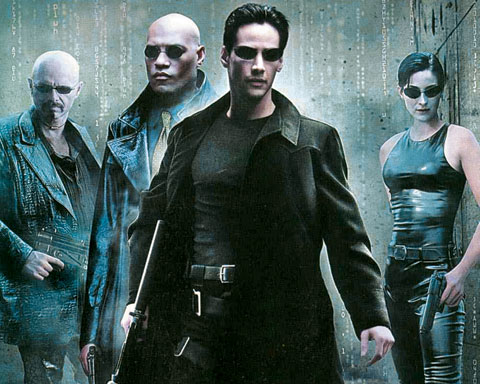
|
Virginia Woolf famously observed that, "On or about December 1910, human character changed."
Woolf, an incomparable modernist, meant that cultural currents within Western society that had been effervescing for decades finally achieved an irrepressible critical mass. This new creative energy altered the way women and men perceived themselves and their collective experience. It transformed how that experience was portrayed in writing, music, dance, and art.
After reading James Gleick's imaginatively conceived and staggeringly researched new work, The Information: A History, A Theory, A Flood, it is clear — to me at least — that Woolf needs updating.
In Gleick's telling, the new pivot of international creative experience is 1948. That is the year an obscure researcher named Claude Elwood Shannon, working at Bell Laboratory's Greenwich Village facility, published what has come to be recognized as an epoch -shaping piece of research.
Unpromisingly titled "A Mathematical Theory of Communication," Shannon turned the idea of communication inside out.
"The fundamental problem of communication," Shannon wrote, "is that of reproducing at one point either exactly or approximately a message selected at another point."
In other words, communication is not about meaning — it is about transmission.
The technical implications of Shannon's insight are legion. Twitter, Facebook, Google, Microsoft, Apple, in effect, rest on Shannon's shoulders.
The Internet is the spawn of Shannon reimagining what once might have been considered a linguistic puzzle with philosophical implications into an engineering problem.
The Information is not linear. Rather, Gleick's book is a historical meditation. For all the facts contained, for all the information transmitted, The Information is a transformative work, raising, I think, perhaps more questions than it answers.
I interviewed Gleick by telephone. He was easygoing — up to a point. Very smart, but seemingly cautious about what he might not know. Fluent, but not glib. I got the sense that Gleick knows he's figured out something terribly important that can be expressed rather simply: that information may be as fundamental as matter, perhaps even more so.
OUT OF COLLEGE YOUR FIRST JOB WAS AT AN ALTERNATIVE NEWSPAPER, CORRECT?
Metropolis. In Minneapolis. The paper lasted about a year.
WHAT DID YOU LEARN?
I can't remember what I learned. It was all so exciting. I learned whatever anybody learns in their first hectic months as a working journalist. I worked for the college paper, but this was all very raw and exciting. It's kind of a blur.
YOU LANDED AT THE NEW YORK TIMES. CAN YOU GENERALIZE ABOUT HOW YOUR EXPERIENCE AT THE TIMES SHAPED THE WAY YOU'VE RESEARCHED AND WRITTEN YOUR BOOKS?
I started at the Times at the very bottom, as a copy editor on the city desk. From my perspective, it's hard even to remember why I was editing and not writing. Probably because I had been the editor of this paper in the Twin Cities. But I was at the city desk. After a while I wanted to try writing, but not for my own department. In those days, that meant trying for the Sunday magazine, which meant longer pieces, which I wanted to do. Some of those pieces were about science because I was interested in it. I approached my subjects as an amateur. I was completely untrained. It worked in part because the magazine was always hungry for interesting, long pieces on scientific subjects.